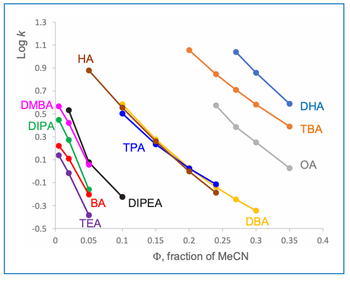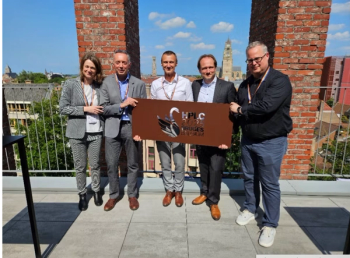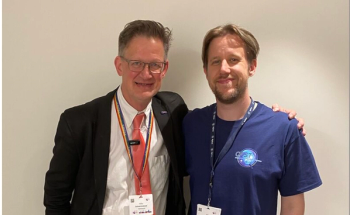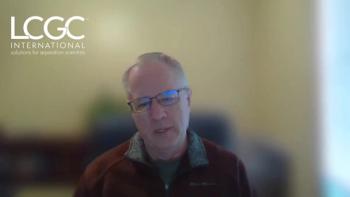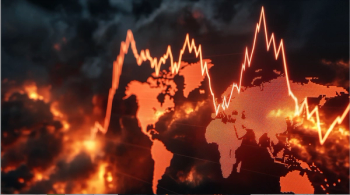
- July 2021
- Volume 39
- Issue 7
What I Am Looking for When Hiring a Candidate: An Analytical Chemist’s Perspective
When selecting new candidates for multifaceted analytical separation science jobs, we rarely find an exact match. So what should we be looking for in job candidates?
For context, I work in Bristol Myers Squibb’s Chemical Process Development department, where (to grossly oversimplify) our remit is to transform discovery medicinal chemistry syntheses into scalable, safe, economical, and sustainable commercial pharmaceutical processes. For my analytical colleagues and me, our day-to-day work can span the gamut of identifying new chemical impurities, inventing and optimizing analytical methods, troubleshooting synthetic hiccups, shaping process control strategies, and researching new ways to speed development timelines. Our dominant tools are separations-based, with liquid chromatography (specifically, reversed-phase) being by far the most widely utilized. Hence, one would assume we would look for the best chromatographers, either in the fields of fundamentals or applications.
My personal observation is that, at least within North America, candidates lacking industrial experience (which is the vast majority of recent graduates) predominantly have not pursued in-depth chromatographic research. Indeed, there are a shrinking number of university groups studying the theory of separations (but if anyone reading this is writing an update to Giddings’ Unified Separation Science [1], I know many who would preorder it). Perhaps the field is too mature, everything has been studied already, or a fancy software package can develop all of my separations methods for me. I hope that we can agree none of these are true.
Making the Cut
To not limit our potential talent pool, we must expand beyond attempting to find plug-and-play scientists already possessing keen chromatographic skills. This is not to say job seekers should be totally naïve, because separations are a cornerstone of any quality chemistry education. Indeed, one component to the “What are we looking for?” question is a comprehensive analytical chemistry foundation, either learned formally or acquired experientially. As my American Chemical Society Subdivision on Chromatography and Separations Chemistry (ACS SCSC) colleague James Grinias noted (2), the topics that could be covered under the analytical umbrella far outpace the time afforded to it in an undergraduate or graduate education. Do we skip burets in favor of capillary electrophoresis, drop graphite furnaces for CCD optics, study specific types of instrument or statistical moments, and on and on?
We hope that students get broad exposure to all facets of chemical measurements, as well as opportunities to delve deeper into a select few (typically a natural result of hands-on research). The most bang for the buck will be topics that transcend subfields. Sampling theory, data evaluation, error analysis, and basic laboratory skills (meaning the ability to weigh, pipette, and use glassware, and do all these things correctly) cannot be underemphasized. Electronics, programming, or in silico modeling experience are not only valuable for more advanced courses and research, but can help differentiate otherwise similar candidates.
Research, Research, Research
Nothing can replace hands-on research experience. Even at an undergraduate level, time in an academic laboratory or interning in industry will yield enormous dividends. This exposure will not only afford an opportunity to hone one’s investigative and technical skills, but it will also provide an environment that will require working within a team and being able to communicate effectively. Hopefully, it’s more than a resume builder, and gives broader insight into the world of research, either igniting a passion for scientific exploration or a realization that another field may be more fulfilling.
The Answer?
If I had to distill it all down to address the question “What am I looking for in a candidate?,” my answer would be “A passionate, innovative, analytical chemist.” If you do not believe me, some of my more recently hired colleagues’ PhD research areas were as varied as:
- fundamentals and applications of nanopipette electrospray emitters;
- single-molecule fluorescence microscopy studies of speedy DNA robots; and
- development and studies of novel bio- analytical stationary phases for liquid chromatography (LC) and supercritical fluid chromatography (SFC).
If our department had limited its hiring scope to “trained separations scientists,” we would have missed out on two out of three of these successful scientists. It is not too difficult to learn how to prime a pump or light a flame ionization detector (FID). Passion, innovation, and problem-solving skills backed by a solid chemical education is where the real gold lies.
References
(1) J.C. Giddings, Unified Separation Science (John Wiley and Sons, New York, New York, 1991).
(2) J. Grinias, LCGC North Am. (The Column Supplement) 16(8), 25–27 (2020).
Jonathan Shackman is an Associate Scientific Director at Bristol Myers Squibb. Direct correspondence to:
Articles in this issue
over 4 years ago
Heroic Failures in Sample Preparationover 4 years ago
Hard-Won Lessons in Gas ChromatographyNewsletter
Join the global community of analytical scientists who trust LCGC for insights on the latest techniques, trends, and expert solutions in chromatography.

